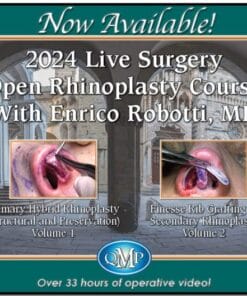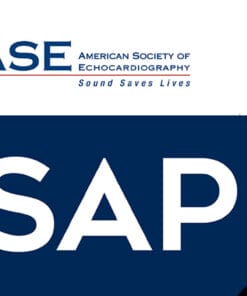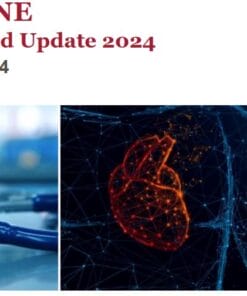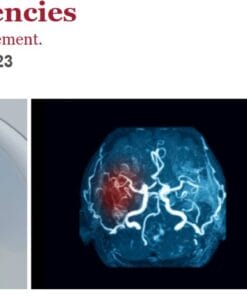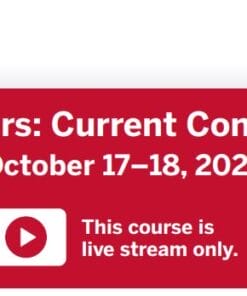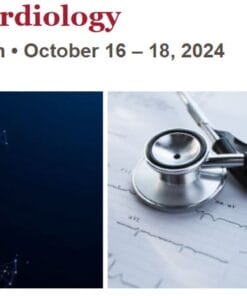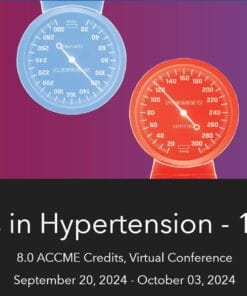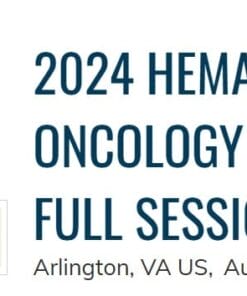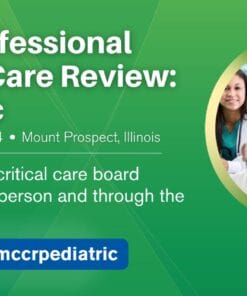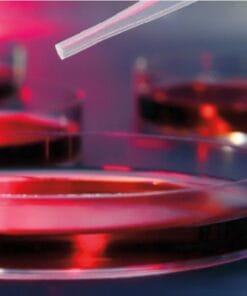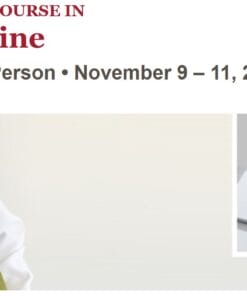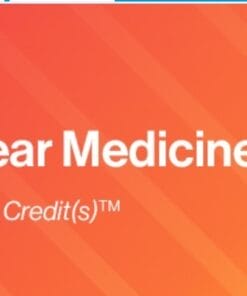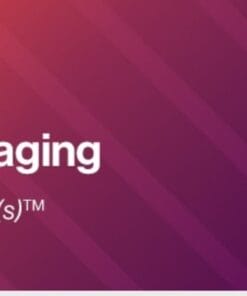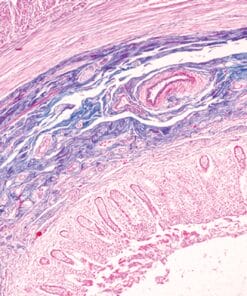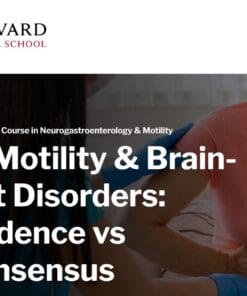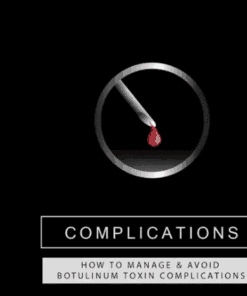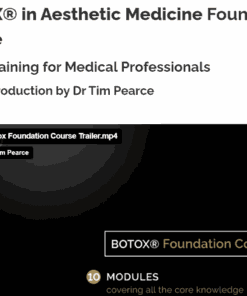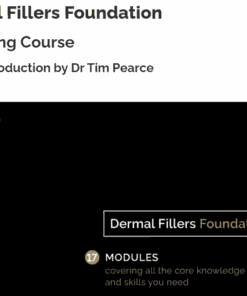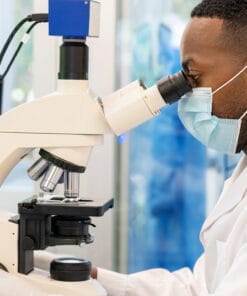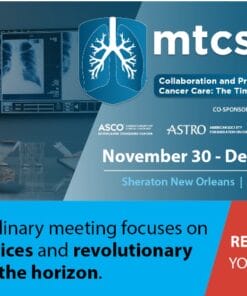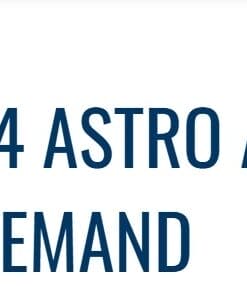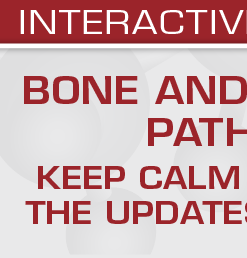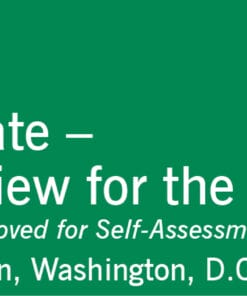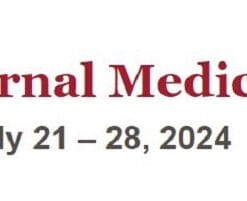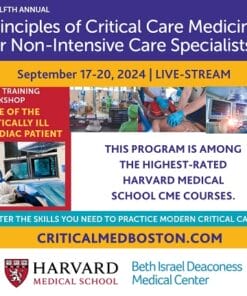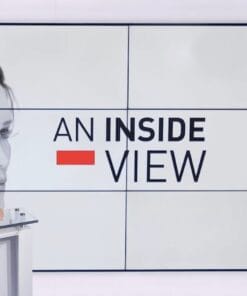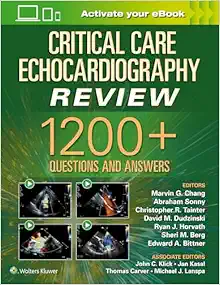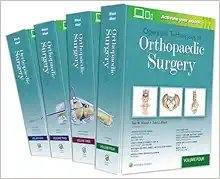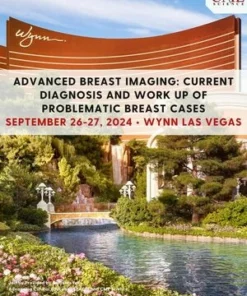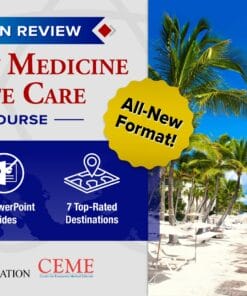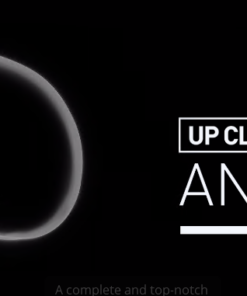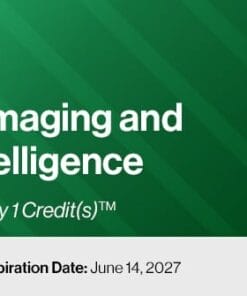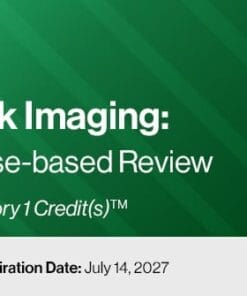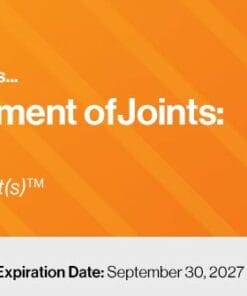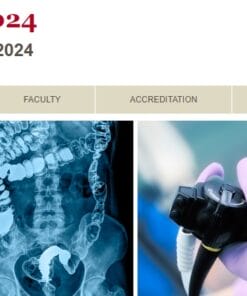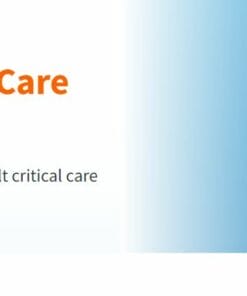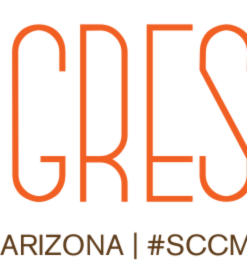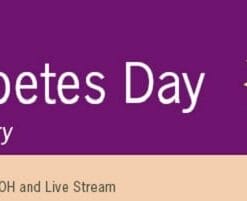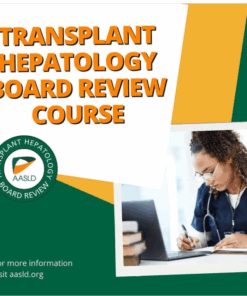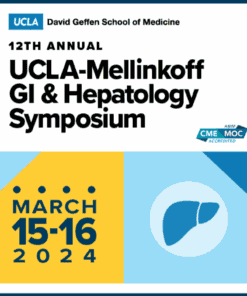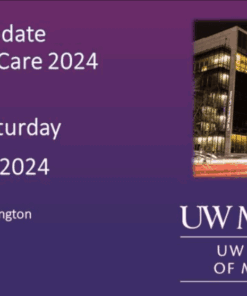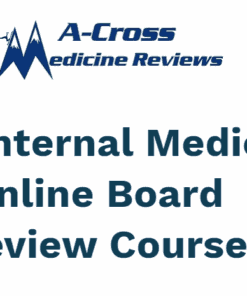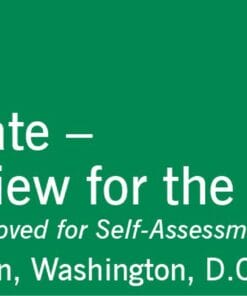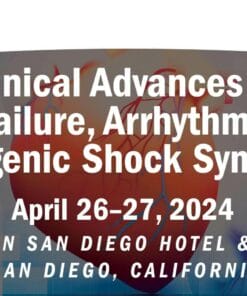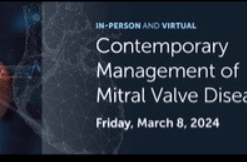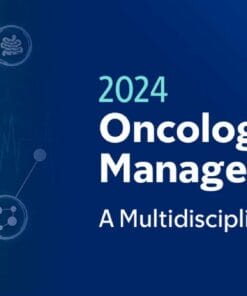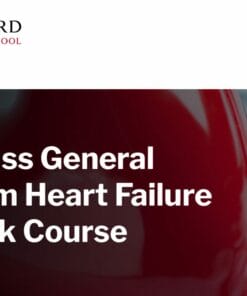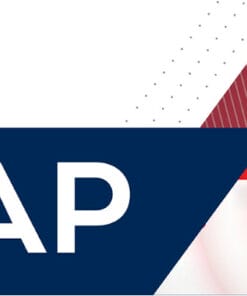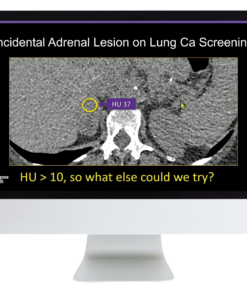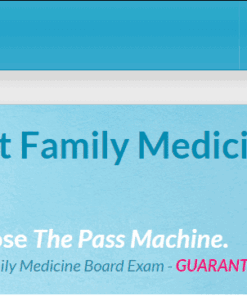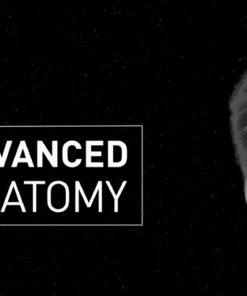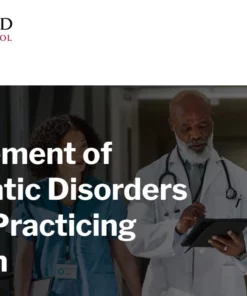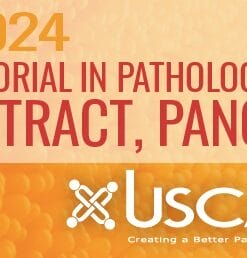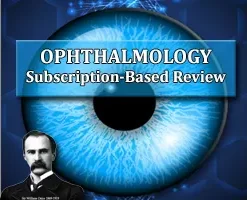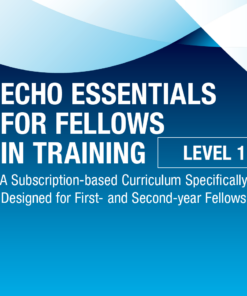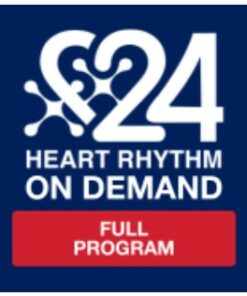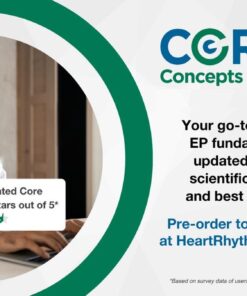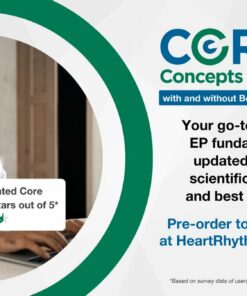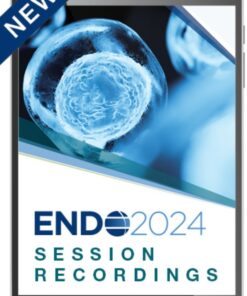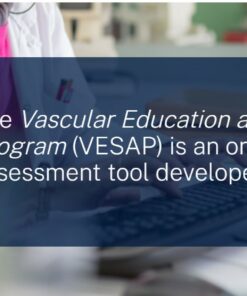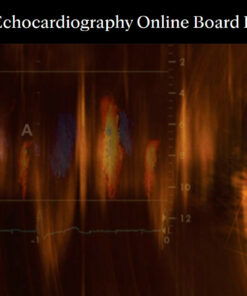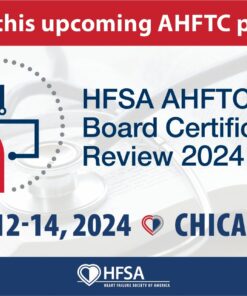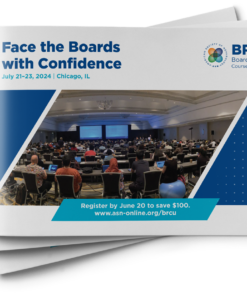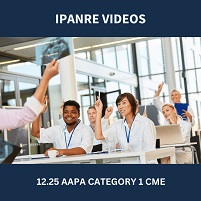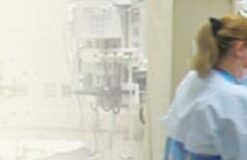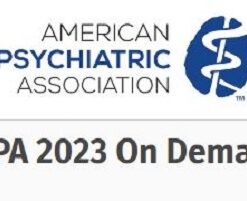All times listed below are Eastern Daylight Time.
| 9:30am to 9:45am | Welcome and IntroductionA. Enrique Caballero, MD |
| 9:45am to 10:15am | Diabetes Report Card: How Are We Doing in Diabetes Care?A. Enrique Caballero, MD |
| 10:15am to 10:35am | Practical Approach to Identifying Different Types of Diabetes in Clinical PracticeLucia M. Novak, MSN, ANP-BC, BC-ADM, CDTC | |
| 10:35am to 10:55am | Current Understanding of Diabetes PhenotypesMiriam Udler, MD, PhD | |
| 10:55am to 11:10am | Break | |
| 11:10am to 11:50am | Q & A and Clinical Cases DiscussionLucia Novak, MSN, ANP-BC, BC-ADM, CDTC and Miriam Udler, MD, PhD |
| 11:50am to 12:10pm | Type 2 Diabetes in the Elderly: What You Need to KnowMedha Munshi, MD | |
| 12:10pm to 12:30pm | A Practical Approach to Anti-Diabetes Medication SelectionMarie McDonnell, MD | |
| 12:30pm to 1:10pm | Q & A and Clinical Cases DiscussionMedha Munshi, MD and Marie McDonnell, MD | |
| 1:10pm to 1:55pm | Break |
| 1:55pm to 2:15pm | Current Nutrition Recommendations and GuidelinesLaura Andromalos, MS, RD, RN, CSOWM, CDCES | |
| 2:15pm to 2:35pm | The Carbohydrate-Insulin Model: A Novel Approach to DiabesityDavid Ludwig, MD, PhD | |
| 2:35pm to 3:15pm | Q & A and Clinical Case DiscussionLaura Andromalos, MS, RD, CSOWM, CDCES and David Ludwig, MD, PhD | |
| 3:15pm to 3:45pm | Interactive Breakout Sessions |
| 9:30am to 9:40am | Welcome, Recap of Day 1, and Description of Day 2 ActivitiesA. Enrique Caballero, MD |
| 9:40am to 10:15am | Non-Alcoholic Fatty Liver DiseaseScott Isaacs, MD, FACP, FACE |
| 10:15am to 10:35am | Exercise in Diabetes Care: The Basics on What Works and WhyJane Reusch, MD | |
| 10:35am to 10:55am | Exercise Recommendations: Building a Tailored Program considering Diabetes Status and ComplicationsJacqueline Shahar, MEd, RCEP, CDCES | |
| 10:55am to 11:10am | Break | |
| 11:10am to 11:50am | Q & A and Clinical Case DiscussionJane Reusch, MD and Jacqueline Shahar, MEd, RCEP, CDCES |
| 11:50am to 12:10pm | Pharmacological Management: Individualizing TherapyW. Scott Butsch, MD, MSc | |
| 12:10pm to 12:30pm | Surgical Management: Why and When?Philip R. Schauer, MD | |
| 12:30pm to 1:10pm | Q & A and Clinical Cases DiscussionW. Scott Butsch, MD, MSc and Philip R. Schauer, MD | |
| 1:10pm to 1:55pm | Break |
| 1:55pm to 2:15pm | Addressing LDL: Cholesterol as Primary TargetOm Ganda, MD | |
| 2:15pm to 2:35pm | Triglycerides and HDL: Cholesterol Management—When and How?Aruna Pradhan, MD, MPH | |
| 2:35pm to 3:15pm | Q & A and Clinical Case DiscussionOm Ganda,MD and Aruna Pradhan, MD, MPH | |
| 3:15pm to 3:45pm | Interactive Breakout Sessions |
| 9:30am to 9:40am | Welcome, Recap of Day 2 and Description of Day 3 ActivitiesA. Enrique Caballero, MD |
| 9:40am to 10:15am | The Microbiome in Obesity, Diabetes, and Related DisordersPatricia Davidson, DCN, RDN, LDN, CDCES, FAND, CHSE, FADCES |
| 10:15am to 10:35am | Clinical Evaluation of the Patient with HypertensionNaomi Fisher, MD | |
| 10:35am to 10:55am | Current Recommendations for the Treatment of HypertensionJohn Forman, MD | |
| 10:55am to 11:10am | Break | |
| 11:10am to 11:50am | Q & A and Clinical Case DiscussionNaomi Fisher, MD and John Forman, MD |
| 11:50am to 12:10pm | Evaluation of CV Risk: Practical RecommendationsJorge Plutzky, MD | |
| 12:10pm to 12:30pm | Reducing CV Risk in the Patient with Diabetes: A Comprehensive ApproachChristopher Cannon, MD | |
| 12:30pm to 1:10pm | Q & A and Clinical Case DiscussionJorge Plutzky, MD and Christopher Cannon, MD | |
| 1:10pm to 1:55pm | Break |
| 1:55pm to 2:15pm | Continuous Glucose Monitoring: A 2023 VisionDevin Steenkamp, MD | |
| 2:15pm to 2:35pm | Insulin Pumps, Closing the Loop: Where Do We Stand?Diana Isaacs, PharmD, BCPS, BCACP, BC-ADM, CDCES, FADCES, FCCP | |
| 2:35pm to 3:15pm | Q & A and Clinical Cases DiscussionDevin Steenkamp, MD and Diana Isaacs, PharmD, BCPS, BCACP, BC-ADM, CDCES, FADCES, FCCP | |
| 3:15pm to 3:45pm | Interactive Breakout Sessions |
| 9:30am to 9:40am | Welcome, Recap of Day 3 and Description of Day 4 ActivitiesA. Enrique Caballero, MD |
| 9:40am to 10:00am | Traditional Medications (Biguanides, SUs, TZDs, Alpha-Glucosidase Inhibitors)A. Enrique Caballero, MD | |
| 10:00am to 10:20am | Incretin-Based Therapies (DPP-IV Inhibitors and GLP-1 RA)Juan P. Frias, MD | |
| 10:20am to 10:40am | SGLT-2 InhibitorsSilvio Inzucchi, MD | |
| 10:40am to 11:00am | Insulin TherapyAnne L. Peters, MD | |
| 11:00am to 11:10am | Break | |
| 11:10am to 12:10pm | Q & A and Clinical Cases DiscussionA. Enrique Caballero, MD, Juan P. Frias, MD, Silvio Inzucchi, MD, and Anne L. Peters, MD | |
| 12:10pm to 1:10pm | Break |
| 1:10pm to 1:40pm | How Do Race and Ethnicity Influence Diabetes Management Decisions?A. Enrique Caballero, MD | |
| 1:40pm to 2:10pm | Identifying Community-Based Resources to Help Patients with DiabetesJosh Trautwein | |
| 2:10pm to 2:30pm | Q & A Clinical Cases DiscussionA. Enrique Caballero, MD |
| 2:30pm to 3:15pm | The Road towards Equity in Diabetes CareJanet Brown-Friday, RN, MSN, MPH | |
| 3:15pm to 3:45pm | Interactive Breakout Sessions | |
| 3:45pm to 3:50pm | Closing RemarksA. Enrique Caballero, MD |





